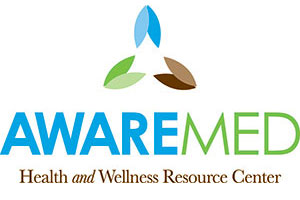Gastroparesis Treatment in Bristol, VA
What Is Gastroparesis Disease?

Gastroparesis, also referred to as delayed gastric emptying, is a digestive disorder in which your stomach's muscular contractions either do not occur or are defective, causing your stomach contents to empty into your small intestine slowly or not at all.
There is no known cure for gastroparesis disease; however, a healthcare provider can help to minimize your symptoms and prevent the condition from worsening or causing health complications such as malnutrition or dehydration. To schedule a consultation with a healthcare practitioner in Bristol who specializes in gastroparesis treatment, call (423) 482-8711 or contact AWAREmed Health and Wellness Resource Center online.
What Causes Gastroparesis?
Under normal conditions, your stomach utilizes muscular contractions controlled by the vagus nerve to move food through your digestive system. When the vagus nerve sustains damage—either from injury or illness—gastroparesis can occur. A common cause of vagus nerve damage which leads to gastroparesis is diabetes ; however gastroparesis can occur from a variety of illnesses and injuries, including:
- Multiple sclerosis and other connective tissue diseases
- Gastroesophageal reflux disease (GERD)
- Abdominal, esophageal, or duodenum surgery
- Infection
- Hypothyroidism and other metabolic disorders
- Scleroderma and other smooth muscle disorders
- Side effects from medication such as anticholinergics and narcotic drugs
- Parkinson's disease
- Eating disorders
Unfortunately, in a large number of cases, gastroparesis is diagnosed as idiopathic because the exact cause is unclear. What is known is that the average age of onset is 34 and that gastroparesis more commonly affects woman than men.
What are Signs and Symptoms of Gastroparesis?
For some, gastroparesis can present with no symptoms; for others, gastroparesis can cause a variety of symptoms, including:
- Nausea
- Heartburn
- Vomiting undigested food within hours of eating
- Distended stomach/abdominal bloating
- Fullness after a few bites of food
- Stomach spasms
- Acid reflux
- Abdominal pain
- Erratic blood sugar levels
- Lack of appetite
- Weight loss
- Malnutrition
Symptoms of gastroparesis disease can be aggravated by greasy foods or by large meal sizes. Symptoms can intensify over time and often mimic other gastrointestinal (GI) tract disorders, making diagnosis difficult.
How Is Gastroparesis Diagnosed?
To diagnose gastroparesis disease, your healthcare provider will conduct a physical examination and review your symptoms. Blood and urine tests, X-rays, CT scans, ultrasounds, or MRIs may be used to determine if you are experiencing gastroparesis or another condition causing intestinal blockage or obstruction.
Your healthcare provider may also recommend additional testing to confirm a gastroparesis diagnosis, including:
- Abdominal ultrasound
- Upper GI series (to examine the small intestine)
- Upper GI endoscopy (to examine the esophagus, duodenum, and stomach)
- Gastric emptying scan
- Electrogastrogram
What Treatments are Available for Gastroparesis?
The type and severity of your gastroparesis—together with other medical conditions you may have—will be taken into consideration when developing your treatment plan. Gastroparesis treatment options range from medications to surgical procedures.
Gastroparesis medications are used to make the stomach muscle contract or contract more vigorously. Common medications prescribed include Metoclopramide (Reglan), Erythromycin (Eryc), and Domperidone. Your healthcare provider may also recommend medication to control your nausea.
Your overall diet will be a key component to your treatment plan, as diet modifications can help alleviate gastroparesis discomfort. Your healthcare provider may provide nutritional counseling in addition to instructions on how to eat to reduce your discomfort.
Additional treatment options include:
- Acupuncture
- Gastric electrical stimulation
- Surgery to implant a gastric pacemaker
- Surgery to implant a feeding tube or gastric venting tube
While gastroparesis cannot be cured, in most cases, your healthcare provider will make recommendations that can minimize complications and symptoms. If you suffer from gastrointestinal upset that you think could be gastroparesis, call (423) 482-8711 or contact AWAREmed Health and Wellness Resource Center online.
AWAREmed Health and Wellness Resource Center
Address
1604 Lamons LaneSuite 202
Johnson City, TN 37604
(423) 482-8711
www.awaremed.com
Hours
Mon:
9:00 am - 5:00 pm
Tue:
9:00 am - 5:00 pm
Wed:
9:00 am - 5:00 pm
Thu:
9:00 am - 5:00 pm
Fri:
9:00 am - 5:00 pm

